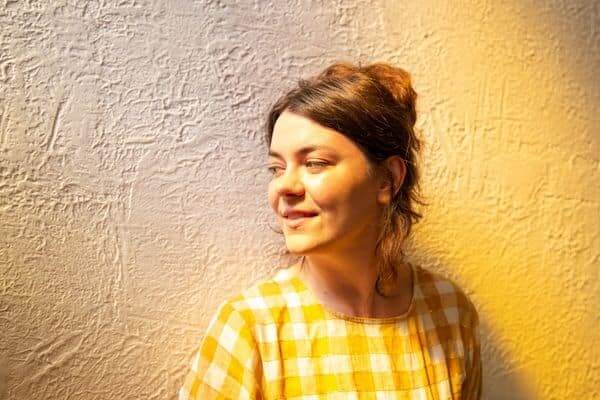Three powerhouse of Australian speakers are attending the 13th edition of the Tata Literature Live! Mumbai LitFest. Award-winning poet and artist, Jazz Money, is one of them.
Money’s works involve installation, digital, performance film and print. Her debut poetry collection, How to Make a Basket, won the David Unaipon Award – dedicated to emerging indigenous writers. Money has her roots in Wiradjuri, a group of Aboriginal Australian people. In 2022, Jazz Money also received the prestigious Dreaming Award from the
Australia Council for the Arts for poetry.
In a quick tete-a-tete with Money at Mumbai Litfest, we ask her about the significance of regional language, and all things poetry!
Can you draw some similarities between Australia and India from your observations?
I really adore Mumbai. I came here years ago and was instantly in love with this exciting, vibrant, utterly overwhelming city. I’m fascinated by the strange shared history that Australia and India both have as colonies of the British Empire, the similarities and differences therein. It seems to me a disservice to even think of either place as simply a ‘country’ when both are made up of so many languages, cultures, stories, spiritualities and people. In Australia, the many nations that make up the continent go back 100,000 years. The British arrival in both places seems like farcical arrogance in the face of such histories.
We are intrigued to know if parts of your writing are influenced by your Wiradjuri and Irish roots?
My writing is informed by who I am and my way of being in the world, which is intrinsically linked to my cultural heritage. The lives of First Nations people in Australia are always political – we have survived the brutality of colonisation and are a constant reminder to the state of the violent dispossession of our many nations that created ‘Australia’. Those politics inform the way I understand the world and much of the narrative in my poetry. In my writing, I seek to celebrate Aboriginal people, our strength and beauty, and our unbroken relationship to the country.
Also read: Antoinette Lattouf at Mumbai LitFest: Five fiery questions
One of the distinctive patterns across your written poetry is that you don’t like to use capital letters or punctuation rules. Why is that?
One of the reasons I love poetry is the rules that make other writing feel hard or tedious are often irrelevant. I write because it fills me with joy, and I write in the way that makes the most sense to me, which is often without capital letters and punctuation. I think if someone can read my writing and understand where pause and breath and emphasis are
because of the way I’ve laid out the page, it somehow feels realer to me.
It’s also a very neat way of saying fuck you to English, which is the language of the invader.
Could you tell us why you feel writing poetry in Wiradjuri is far better than writing in English?
Wiradjuri is a language of poetry. It is a language of philosophy, history, esoteric knowings, it is both practical science and lyrical beauty, all belonging deeply to Wiradjuri Country. Even though English is the language I know best, it is a weak approximation of anything held in Wiradjuri.
What should young writers know about writing or writing in regional language?
My advice to young writers is that writing should be joyous. Even when it is hard, or tiring, or full of heartache, it should give you a rush to do it. That might mean writing in your mother tongue, or in a language that feels remote to the mainstream. I think we forget about the fun of this craft when we focus on the rules, but I encourage writers to seek the joy and satisfaction that can only be found through writing. It’s a compulsion in someway.
Read More: Gabrielle Chan at Mumbai LitFest 2022: Five fiery questions





